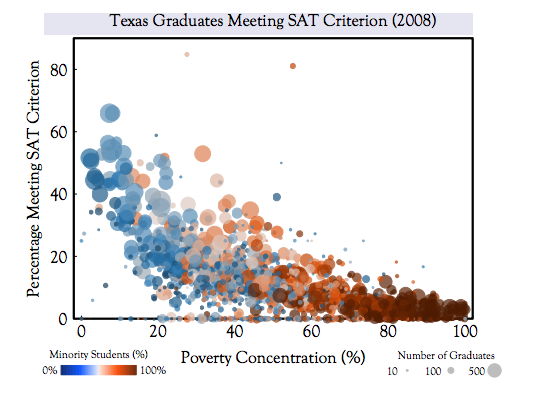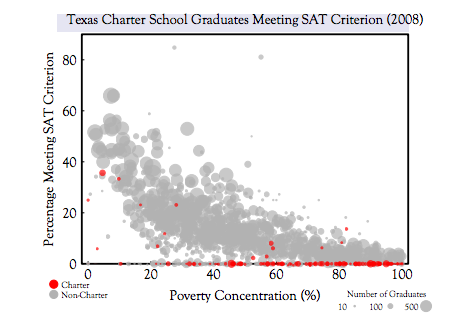Give Us Charter Schools, Or We’ll Amend the Georgia Constitution
Latest Story
In the November 2012 election, citizens of Georgia will vote (charter school amendment) to re-establish the State Charter School Commission which will have the power to create charter schools anywhere in the state, even without local school board approval.
A few days ago, Dr. John Barge, Georgia’s State School Superintendent broke ranks with the Georgia GOP and announced that he opposes the charter school amendment on the November ballot. Barge, who is a Republican and former teacher, previously supported the state’s right to create charters. Now he’s changed his mind.
Governor Deal is mad. The Georgia House majority whip is really angry. And a host of other GOP legislators are quite mystified.
Give us charters, or….
This is not the first time I’ve written about the charter school controversy in Georgia. Charter schools are seen as a cure-all to raise test scores of American students. It kind of like a philosopher’s stone, or a 19th century elixir, to serve as an antidote for the ills of traditional public schools. Many policymakers are motivated by the delusion that choice and competition is the answer to solving problems facing our schools.
I want to revisit the issue again to put into perspective this issue that is facing educators, school boards, and the citizens of Georgia.
Context
In 2009 and 2010, seven Georgia public school systems (Gwinnett, Bulloch, Candler, DeKalb, Atlanta, Griffin-Spalding, and Henry) filed a constitutional challenge to the 2008 Georgia Charter Schools Commission Act. The districts contended that the act was unconstitutional because it violates the “special schools” provision of the Georgia Constitution of 1983 which includes the principle that only local school districts can establish schools. In the Georgia Charter Schools Commission Act, the state is authorized to create competing State-created general K-12 schools.
In May 2011, the Supreme Court of Georgia in the case Gwinnett County School District v. Cox, ruled that charter schools must be approved by local school boards of education. Many legislators and charter school lobbyists were not pleased by decision of the court to neuter the state commission on charters. During the 2012 legislative session, GOP legislators submitted a bill that would avoid the court’s decision by making an amendment to the State’s constitution.
In March, 2012, the Georgia legislature passed a bill (HR 1162) that amends the Georgia State Constitution by establishing state-wide policy that will enable the Georgia General Assembly to set up special schools that will include charter schools without the approval of local schools.
The Georgia Senate , needing 120 votes, narrowly passed the bill 123 – 48. Republican senators got three Democrats to join them in the vote. Three days before the vote, the GOP did not have the votes, but over that weekend, several Democratic senators changed their minds, fearing a back-lash from constituents. This blog contacted each democratic member of the Georgia senate to urge them not to change their vote.
On May 3, 2012, the governor of Georgia signed a bill that will restore the state’s power to approve and finance charter schools without local school district approval. The legislation, however, needs voter approval in November because this bill is a constitutional amendment. On November 6, 2012, Georgia citizens will vote on the Georgia charter school amendment. In a March 30 poll by McLaughlin & Associates, 58% of those polled were in favor of the amendment, 23% opposed, and 19% undecided.
Consequences
One of the consequences if the charter amendment passes is the loss of local control of some educational policies. If the amendment is approved, then the state commission will run a parallel school system that will take more than $400 million from the already stretched education budget in the state. Money and decision-making are at the heart of the charter school issue in Georgia, not the improvement of education or options for parents and students.
If the Georgia charter amendment is approved it will result in an increase in politics and influence peddling in the context of multimillion dollar opportunities by establishing charter schools in various counties in each state. Real estate investment firms will find a pot of gold here.. Firms will come in to buy land and/or empty buildings (schools, factories) and then in turn lease them to for-profit charter school management companies, such as KIPP, Academica, or Charter Schools USA. Boston recently worked out a deal in the interests of corporate investors.
John Barge, State School Superintendent says:
that until all public school students are in school for 180 days, until essential services such as student transportation and student support can return to effective levels, and until teachers regain jobs with full pay for a full school year, we should not direct one more dollar away from Georgia’s local school districts – much less an additional $430 million in state funds, the cost of adding seven new state charter schools per year over the next five years.
According to Barge, more than 4,000 teachers have lost their jobs since 2008, and this does not count furloughs. And today, President Obama is calling on Congress to release billions of dollars in funds to counter the effects of teacher layoffs on student-to-teacher ratios which have risen by 4.6%.
The conservative editorial writer for the Atlanta Journal-Constitution, Kyle Wingfield charges Barge with turning on the GOP, and of not telling the complete picture of the charter amendment. You read Wingield’s article here. Wingfield has it wrong, not Barge. The charter amendment will open the flood gates to investors who see a cash cow in Georgia.
Last year when the Georgia legislature was debating the amendment, State Senator Doug Stoner, who voted against HR 1162, believes that the charter schools amendment would set up a dangerous system.
He wrote this in his newsletter:
To change the Constitution to create a charter school or any “special school” favored by current or future state bureaucrats, and forcing local school districts to accept such schools would set up a very dangerous system that clearly violates the concept of local control. I cannot support such a state government mandate, especially when the legislative majority has slashed local school funding by more than $1 billion in recent years.
Locally elected school board members across the state have spoken out against HR 1162, which comes as no surprise. It is certainly reasonable to ask why the state is creating a new funding stream for charter schools while reducing financial support for other schools, forcing reduced education calendars, elimination of programs and teacher furloughs.
These are decisions that should be made by school districts at the local level, not from a high-rise office tower in downtown Atlanta. The sponsors of HR 1162 say it is necessary to overturn a Georgia Supreme Court ruling against state-mandated charter schools. But common sense says the court got it right. That’s why I will oppose HR 1162 if it comes to a vote in the Senate this week.
Money
According to an article in the Atlanta Journal-Constitution newspaper, “charter schools are touted as the reform model that will boost student achievement by allowing schools to be creative and by having parents, teachers, and the community more a part of the decision-making.” But as you will see below, charter schools simply do not do as better as their public school counterparts, and indeed, students would be better off going to public schools.
But what is odd, is that politicians, from governor’s houses to state legislatures, are willing to “sell off” public entities, and turn them over to other interests. In fact, Michael Klonsky claims that powerful conservative forces are pushing for less regulation over charter schools, and more teacher evaluation largely on student test scores. These moves by the Georgia legislature will result in the overall weakening of Georgia Public Schools. Pushing teachers to the sidelines, and moving corporate interests into public education is a huge mistake.
Corporate interests? Yes. Behind this move to make it easier to set up charter schools are for-profit charter school organizations who are ready to move in and use state and local funds to manage charter schools. In some states, new charter schools receive start up funds at a time when public schools are having furlough teachers and administrators to try to meet the budget.
According to a report by Dick Yarbrough, charter schools appear to be about money and politics and influence peddling. He wonders why, with the Georgia Department of Education reporting that charter schools don’t perform as well as traditional public schools and their graduation rates are no better, the Georgia legislature is so bent on changing the State Constitution to allow charters to be created by an appointed state commission.
As Yarbrough reported, the Miami-Herald did a study of charter school operators in Florida, and found that is nearly a half-billion dollar business, and one of the fastest growing in Florida. According to the newspaper report, the charter school industry, is “backed by real-estate developers and promoted by politicians” and “rife with insider deals and potential conflicts of interest.”
In Florida almost two-thirds of charters are run by management companies. The management companies charge fees that sometime exceed $1 million per year per school. And another interesting aspect, is that these management companies own the land and/or the buildings, and then turn around and charge either the state or the local school system.
Research
Although not likely to change the minds of the proponents of charter schools, research shows that charter schools do not fare well when compared to regular public schools.
At the University of Texas, Dr. Michael Marder, Professor of Physics, analyzed data looking at academic performance in all Texas schools. One of Dr. Marder’s significant findings in his research on educational outcomes is that
Nothing makes sense in education except in the Light of Poverty.
Dr. Marder found that when he plotted poverty concentration in Texas schools and percentage of students in each school meeting SAT Criteria, he found that schools with low concentrations of poverty did well on the SATs, but students from high poverty schools did not do well. As seen in Figure 1, there is an inverse relationship between poverty concentration and academic performance as measured by SAT scores.
When he looked at the type of school, charter vs regular public school, he found the results to be quite dramatic. If you look at figure 2, there are 140 charter schools in Texas with 11th grade data. As you can see in Figure 2, most of the charters form a flat line at the bottom of the graph indicating that except for 7 charters off the flat line, the rest of the charters are doing worse than the regular public schools. Dr. Marder has analyzed data from California, New York, and New Jersey and found that charter schools do not do better than regular public schools in any of these states.

Figure 1. Percentage of high school graduates meeting Texas SAT/ACT College Readiness Criterion plotted as a function of concentration of poverty. Every disk is a high school, with the area of the disk proportional to the number of graduates. Colors indicate the percentage of minority students in school. Source: Dr. Michael Marder, Used with Permission. Click on the graph for more visualizations.

Figure 2. Percentage of high school graduates meeting Texas SAT/ACT College Readiness Criterion plotted as a function of concentration of poverty. Every disk is a high school, with the area of the disk proportional to the number of graduates. Charter schools are highlighted; non-charters are grey. Source: Dr. Michael Marder, Used with Permission. Click on the graph for more visualizations.
In a second major study of charter schools, we turn our attention to Standford.
In a study published by the Center for Research on Education Outcomes (CREDO) at Stanford, hundreds of charter schools in 15 states and the District of Columbia were studied to find out what was the impact of these charter schools on student learning. The approach CREDO followed to carry out this study is described here:
CREDO has partnered with 15 states and the District of Columbia to consolidate longitudinal student?level achievement data for the purposes of creating a national pooled analysis of the impact of charter schooling on student learning gains. For each charter school student, a virtual twin is created based on students who match the charter student’s demographics, English language proficiency and participation in special education or subsidized lunch programs. Virtual twins were developed for 84 percent of all the students in charter schools. The resulting matched longitudinal comparison is used to test whether students who attend charter schools fare better than if they had instead attended traditional public schools in their community. The outcome of interest is academic learning gains in reading and math, measured in standard deviation units.
The results raise serious question about the efficacy of charters, and reaffirm the central importance of a strong public school system. The results also are in agreement with the findings of Michael Marder’s study: Failure of U.S. Secondary Schools in Mathematics: Poverty is more important than Teacher quality.
Here are some of their findings from the CREDO study:
- Of the 2403 charter schools reflected on the curve, 46 percent of charter schools have math gains that are statistically indistinguishable from the average growth among their TPS comparisons.
- Charters whose math growth exceeded their TPS equivalent growth by a significant amount account for 17 percent of the total.
- The remaining group, 37 percent of charter schools, posted math gains that were significantly below what their students would have seen if they enrolled in local traditional public schools
Outcome
The outcome of the charter amendment in Georgia will not be known until the evening of the Presidential election. Polling data shows that the amendment will pass. If so, school districts around the state should be prepared to challenge the constitutionality of enabling unelected and non accountable appointed bureaucrats to create their own school system.
This blog post has been shared by permission from the author.
Readers wishing to comment on the content are encouraged to do so via the link to the original post.
Find the original post here:
The views expressed by the blogger are not necessarily those of NEPC.
